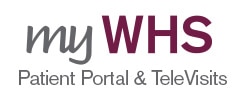
Dr. Zoë Hawkins is currently a second year Family Medicine resident at the Washington Health System. She was raised about 100 miles north of Pittsburgh in a small town called Brockway. She attended The University of Scranton, studying Biology. Afterwards, she enrolled in the Lake Erie College of Osteopathic Medicine in Erie, Pennsylvania before moving south to Washington, PA. When she isn’t working she enjoys spending time with her family and friends, as well as doing just about anything outside including fishing, hiking, hunting, boating and kayaking.
Drug and Alcohol Awareness Month
With September being Drug and Alcohol Awareness month, it’s a good reminder for us to understand and recognize who is affected by drugs and alcohol as well as what the treatment options are in our local community. Addiction affects everyone. It doesn’t discriminate between race, gender or social economic status. Here’s some facts about drugs and alcohol.
- Nearly 17 million adults in the United States suffer from alcoholism. Many people forget that alcohol is a drug because of how pervasive it is in our society, but it is one of the most dangerous and addictive drugs out there. It can lead to severe adverse health effects and life-threatening withdrawal symptoms.
- An estimated 88,000 people die per year due to alcohol. Whether it be due to a medical complication such as cirrhosis, cancer, or heart attack, alcohol is the third most preventable disease in the world.
- Drug abuse led to about 2.5 million emergency department visits in 2011. Drugs impair decision-making and judgment in users, which leads to a number of negative consequences, such as mixing substances, driving under the influence, or engaging in physical fights. Overdose is one main reason for emergency department visits and it most commonly occurs when two drugs are combined.
- Only about 11% of those addicted to drugs or alcohol in 2009 actually received treatment for their substance abuse disorder. This means that about 20 million people suffering from an addiction to drugs or alcohol went untreated. Those who don’t enter a recovery program are at risk for developing or exacerbating a mental health disorder or physical ailments.
There are numerous treatment centers, meeting and sponsors located right in Washington county to help people get treatment. Your family doctor can help provide these resources and other routine health testing that may need to be done. Also you can visit wdacinc.org (Washington Drug and Alcohol Commission) for a full list of specific details on resources.


